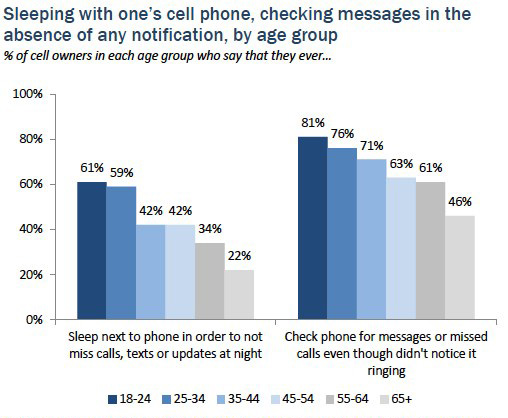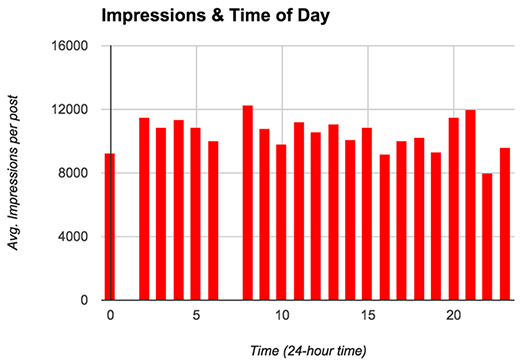Don't understand these social media sub-rules, what new media marketing do you play?


Have you ever wondered why you brush your circle of friends and tweet? Why do you have to visit Taobao to browse baby?
There are motivations behind our online behavior, especially on social media, where friends and family greatly influence the way we click, share, or like. A new study proves it. The findings cover how people influence and respond to each other, the amount of time they spend online, and the purchasing decisions they make. Analysis of this result is very interesting, I believe that doing the market you understand is also beneficial.
Can you use the tips mentioned in this article into your social marketing strategy? Then read it quickly and see what this study does.
1the underlying rules of interpersonal communication in social media
Do real-life friendships and social media friendships follow the same set of rules for interpersonal communication?
Researchers Erin Bryant and Jennifer Marmo from Arizona State University conducted a study on Facebook in 2012 to find answers to this question. The study looked at young people in six focus groups who brainstormed the rules of interpersonal communication on social media.
Eventually they came up with 36 rules and then used the 36 rules to evaluate another 600 Facebook users between the ages of 18 and 52, 13 of which were verified as correct. See here you may still be a fog, what exactly is the rules of interpersonal communication? Take a look below:
1. If you respond to this person's message, I'll expect him to respond.
2. I can't say anything disrespectful.
3. When I post myself, consider what negative impact it will have on the relationship between the person who saw the message and me.
4. If this person deletes one of his messages, I shouldn't forward it again.
5. I should have done it in other ways instead Facebook to contact this person.
6. I should present myself with a positive and honest side to this person.
7. I can't let this man be there Facebook communication prevents you from completing your work.
8. If a message is going to get objection from this person, then I shouldn't send it out.
9. I should communicate with this person with the most basic common sense.
10. Before I post, I should consider the negative impact it may have on this person's career trajectory.
11. I should have done it in other ways instead Facebook Come and give this man a day of blessings.
12. If I want to tag someone on a photo, I should be careful to maintain his image.
13. I shouldn't dig too much into this person's home page.
(Unfortunately, rule 14 is that I should be aware of the impact this person's posting of information about me will have on me in real life.) )
One interesting part of the study was asking participants to judge whether the rules would be applied to close friends, regular friends, or generalizations. As a result, the difference between close friends and generalizations came as a big surprise.
Rules related to maintaining relationships (e.g., a simple "Happy Birthday" on social networks, with reference to Rule 11) are most commonly used for generalizations, and these rules are rarely used for close friends. Bryant explains this: Of all the ways we connect with close friends, social networking sites like Facebook are just one, but it may be the only way we can make contact nods.
What does this mean for you in the market?
The key point of this study lies in the importance of mutual benefit.The first rule mentions that people expect responses from others and applies it to social marketing, which means responding to a user's message or comment.
In addition, people treat friends of different degrees of closeness differently, and the results of this study also influence our market strategy. Here's how we define friends with three levels of intimacy:
· Close friendsThat's the kind of person who treats them as the best friends when they are students
· Ordinary friends, is the kind of person who hangs out online but doesn't develop further
· The general turn, is a kind of person who has face-to-face with him but does not communicate with him on a daily basis
For marketers, fans of the product's home page are essentially in category 3, which is a generalization. As mentioned above,Rules related to maintaining relationships are most commonly used by such people, such as expressing concern about a user's gradual growth in the community, responding to a user's comments, and forwarding positive messages.
2Friends keep us in touch all the time
Six out of ten mobile phone holders between the ages of 18 and 34 said they would sleep with their phone at the end of the bed to avoid missing calls, text messages or other important messages.
Did you get it, too?
The data comes from a 2012 Pew Research Center survey of mobile phones that demonstrated people's dependence on maintaining friendships and how often social media is used. If a friend has something to say, we'd love to know and don't mind the time.

The survey can also be interpreted from another angle. If at some point we don't look at our phone very often, then there will be a stronger desire to open the phone and see updates to a friend's home page or message.
· 39% They said they had been complained by friends about not returning text messages and phone calls in time.
· 33% People say they have been complained by friends that they don't watch their phones hard enough and don't do it often enough.
· Only. 12% Friends say they spend too much time on their phones.
We want to keep in touch with our friends at all times, but at the same time, we feel the social pressure of always connecting.
What does this mean for you in the market?
We should be careful to look for the best time to post a message, and the best time doesn't mean it's the peak time for people to play with their phones.The Peel Research Center suggests that the above data is unquestionably proof that whenever we post on social media, people are online, so it's important that we test it all the time 24 hours a day to see when it works best.
If you look at the data we post on Twitter on Buffer, a social media management platform, you'll see several peak periods, day and night.

3How do friends influence people's purchasing decisions?
Pacific Standard, a leading US research journal, provides a wonderful summary of an interesting phenomenon proposed by a number of researchers from Oxford, Harvard, Limorick and other universities, which we will briefly describe below:
Suppose you're hesitating to download one of the two games, FarmVille 2 and Candy Crush Legend. Would you be inclined to listen to recommendations in online reviews, or would you trust a friend's recommendations? Although you think you can fairly refer to a friend's opinion, you may unknowingly prefer the friend's choice.
The study called for purchases of apps on Facebook since 2007. In this study, users were faced with the impact of two types of information on purchasing decisions:
· “Accumulated information”, for example, the best-selling app list.
· “Recent active information”For example, a friend has just installed the app.
Essentially, buying the app means you trust your own surveys or public comments, or you can play the game with friends. This study shows that friends have a greater impact on you than the survey results.
Researchers say the influence of friends could lead to an exponential increase in the popularity of apps, just like apps in the AppStore, whose name, if successful, will grow like a snowball. Here's how the researchers explained that people randomly imitate their friends' behavior and make similar choices to those they've made recently, so they're most likely to choose the product with the fastest growth in popularity, not whether the product's popularity is highest or not.
What does this mean for you in the market?
Whether you're doing e-commerce or a product or not, the following suggestions are valuable to you.
Take, for example, the Law of Social Identity.If you want to convince a user to take action, show him the lot of "likes" the product gets.The testimony of acquaintances is more convincing and similar.
Facebook's use of this law has taken it to another level, with like buttons appearing not only on its own sites, but also on other sites as plug-ins. On those sites, you can see which of your friends have also liked them, which greatly affects how you think about the site and increases your likelihood of likes.

4, care to share
There have been many preliminary studies on the impact of social media on friendship, and the conclusions have both positive and negative effects. Here's an interesting study that has led to a significant increase in positive influences: Direct interaction with people on social media enhances friendships.
According to Bree McEwan, a professor at Western Illinois University, when we send private messages to others, browse his home page, and like each other's messages, we add value to friendships and feel closer. She surveyed a group of young people about certain actions on Facebook, including comments and comments on a friend's Page.
These actions fall into two broad categories:
· Care.——“Express your concern for your friends through messages”, which is to reply to someone else's message
· Share.——“Through self-presentation and presentation, to achieve the purpose of maintaining the relationship”, that is, publish the message yourself
Professor McEwan concludes that caring is good for strengthening friendships, and sharing can lead to a gradual loss of interest. If one focuses only on sharing personal information and doesn't like replying to messages from others, the relationship can deteriorate. And if a person likes to show concern for a friend and respond positively, he or she will find that social networking provides a convenient way for him to maintain his friendship.
What does this mean for you in the market?
Building a good relationship on social media is like building a two-way street.
You have to: 1, post useful and interesting content;
If you see social marketing as an opportunity to build relationships, one-way sharing doesn't make your company or brand more popular, and care can do it. As Professor McEwan concludes, expressing concern and responding positively on social media can improve your friend's satisfaction.
Conclusion.
You may know the impact of your friends on your own use of social media, but the impact is so great that you may not realize it. The underlying rules of communication, buying decisions, and the influence of friends have permeated every aspect. These studies can help marketers use social media effectively and care for and share. Have you started to use these tricks?
Source: Instagram@DIGITALING
■ Click on the end of the article Read the original text Know:How to increase the number of valid orders for enterprises as soon as possible
■ Click on the menu bar Little dynamo words→IN activity Understanding: Free Corporate Network Marketing Training In December
For more Internet activities, more historical dry goods, please click on the public number, tease menu bar and historical news yo
Shanghai Tianxing, a professional Internet marketing service provider
Microseals:tq365-cn
Toll-free:400-620-8365

Go to "Discovery" - "Take a look" browse "Friends are watching"